Understanding the effects of the three repealed ACA taxes and fees.
On December 20, 2019, the Trump administration signed the 2019 continuing spending resolution that repealed several Affordable Care Act (ACA) taxes. With these repeals coming into effect this year and next, it’s important for employers to understand how the repeals will affect their bottom lines. To keep you informed, here is an overview of the three repealed ACA taxes and fees.
- Cadillac Tax
In 2013, the ACA imposed the Cadillac Tax, a 40% excise tax on high-cost group healthcare coverage. Under this provision, the amount that an employee’s employer-sponsored health coverage exceeded the annual limitation would be taxed by 40%. This tax was to be calculated by the employer and paid by the coverage provider. Since its enactment, the Cadillac Tax has been hugely unpopular, as evidenced by its continued repeal and delay. With the signing of the 2019 continuing spending resolution, the Cadillac Tax is officially repealed beginning in 2020.
- Medical Devices Excise Tax
In 2013, the ACA imposed a 2.3% excise tax on the sales price of certain medical devices. The manufacturer or importer of the taxable medical devices was responsible for reporting and paying this tax. In 2016, the federal budget suspended this tax for two years, and a continuing resolution in 2018 continued the suspension until 2020. The 2019 continuing spending resolution fully repeals this tax starting in 2020, meaning that the tax is not applicable to any sales made after January 1, 2016.
- Health Insurance Providers Fee
In 2014, the ACA imposed an annual fee on the health insurance sector, allocated across the industry according to market share. Treated as an excise tax, this fee was nondeductible and was expected to be paid by September 30 of each year. In 2016, this fee was suspended for the 2017 calendar year, and another resolution suspended it in 2019 (the fee did apply for the 2018 calendar year). The 2019 continuing spending resolution officially repealed this fee starting in 2021, which is expected to save employers a significant amount of money on their sponsored health plans.
This is what you need to know about the 2019 continuing spending resolution, and the three repealed ACA taxes and fees. Want to stay in the loop with all the latest legislation and news affecting business owners across the country? Then turn to the experts at CIA Insurance and Risk Management. Our dedicated team is eager to assist you with all your coverage and employee benefits needs today.
Post written by Janelle Morck, Vice President | Employee Benefits Risk Management (ERM)
Comments are closed.




